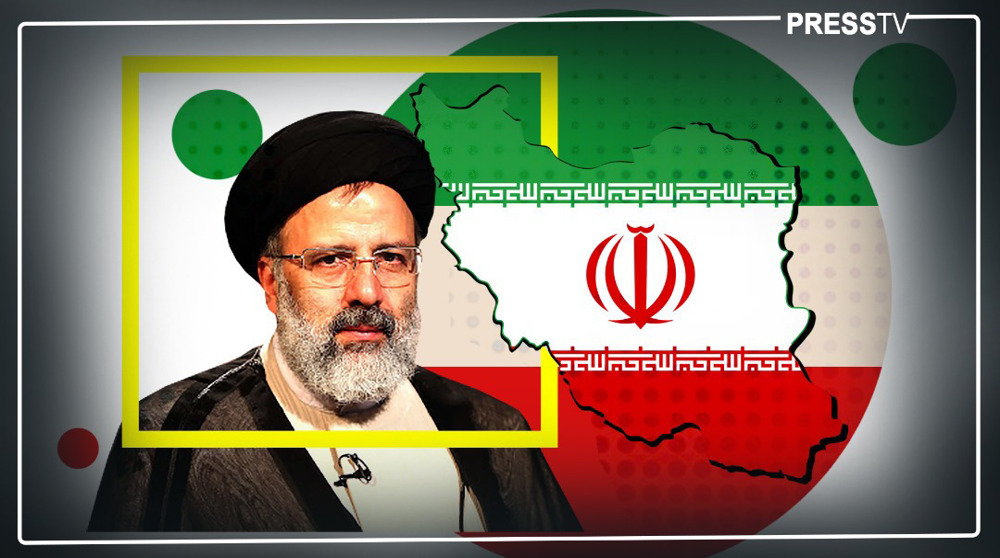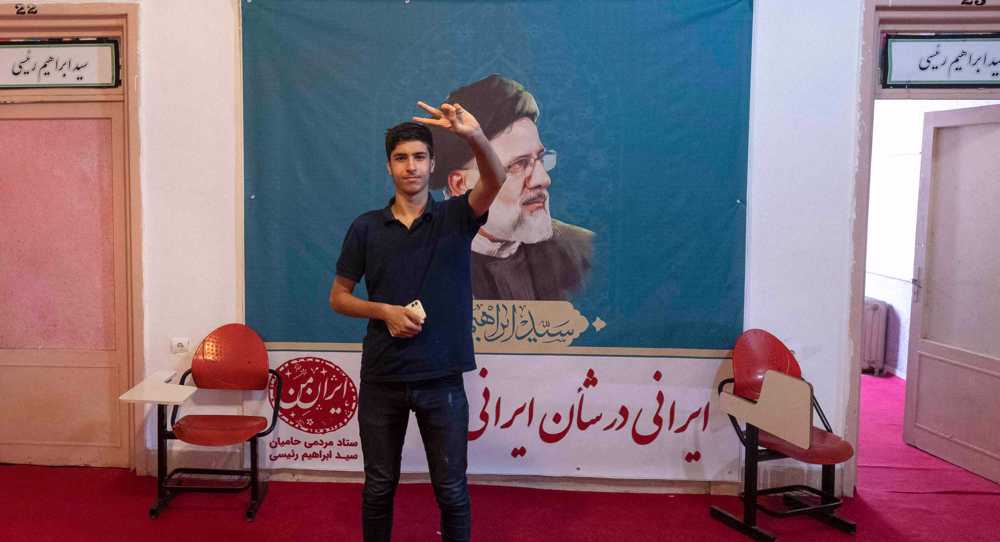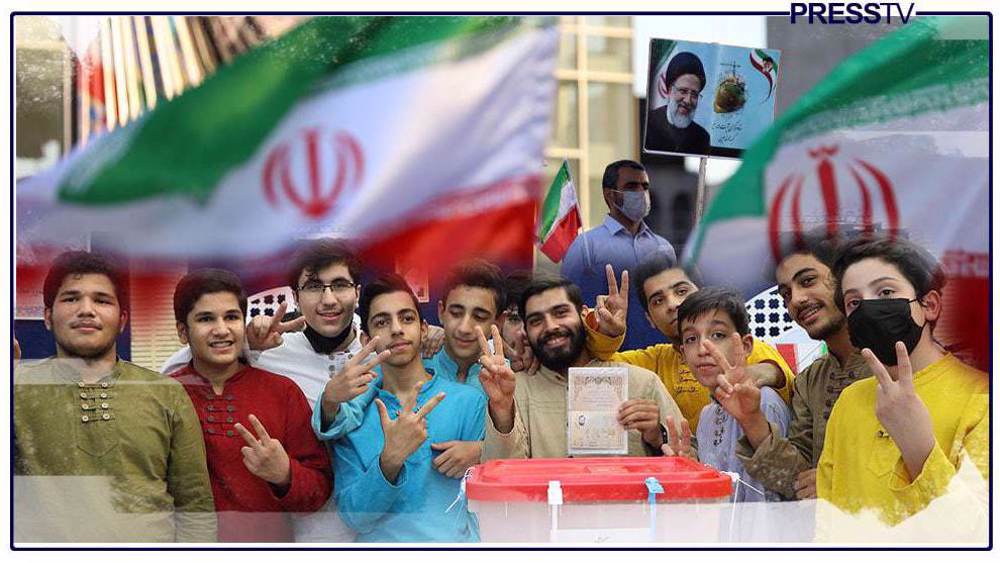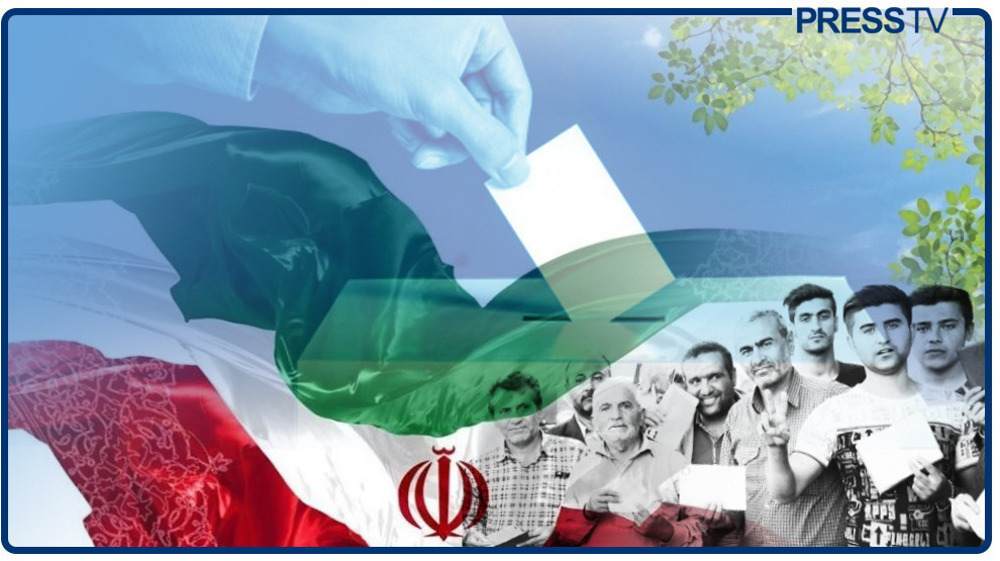
Criticism of Iran's election in Western media is sheer hypocrisy
By John Wight
Never will you see the word ‘hardliner’ being thrown around by Western media outlets so frequently and with such abundance as it is in advance of and immediately after a presidential election in Iran. ‘A member of a group, typically a political group, who adheres uncompromisingly to a set of ideas or policies,’ is the dictionary definition of this particular word.
With this in mind, we can only marvel at the fact ‘hardliner’ is absent before or after Tony Blair and George W Bush when their names appear in Western media. And what about Netanyahu, Bennett, Obama, Cameron and Clinton et al? Why is ‘hardliner’ never attached to them, war criminals and rogues all? To ask this question is to answer it.
Between them, the above-named leaders have rained down more death and destruction than every natural disaster there has even been. They have violated the human rights of more people, unleashed more chaos and mayhem, and sown more human despair than cancer.
But not for them the moniker ‘hardliner’. No, they’re the cowboys in this movie, the good guys, while the Iranians, Russians, Chinese, Cubans and Venezuelans, they’re the Indians, the bad guys who belong to inferior cultures, systems, and ways.
I don’t live in Iran, have never once set in the country, but I don’t need to in order to understand that what passes for serious news analysis in the West when it comes to the designated ‘other’ is pure propaganda. It would not have mattered who won Iran’s latest presidential election, said candidate would still have been regarded with disdain.
As to the observation that the turnout for this election was relatively low, and that this was due to a campaign of boycott in protest at the lack of a reformist candidate on the ballot, such a development is neither unique or indigenous to Iran. I personally have lost count of the number of elections I have boycotted in the UK in my time, due to not believing in any of the candidates standing.
The point is that boycotting an election is a normal political statement in a functioning democracy. Better this, surely, than people being forced into polling stations at the end of bayonets.
The winner of this particular election, Ebrahim Raisi, hails from the conservative wing of Iranian politics. A cleric and the current head of the country’s judiciary, he’s attracted controversy and criticism over his alleged role in the execution of political prisoners in Iran in the 1980s. One man’s political prisoner is another’s terrorist, however, which holds true in every country and under ever political and judicial system.
The mass execution of black suspects by the police across America is never described as such. Neither are the decade-long sanctions imposed on the poorest and most vulnerable in British society between 2010 and 2020, officially referred to as austerity, which led directly to the premature deaths of thousands. A mass execution by any other name.
This writer is not here to justify or defend injustice wherever and whenever it occurs. But the primary source of injustice currently taking place in Iran stems from US-imposed sanctions, the lifting of which Ebrahim Raisi has pledged will be his priority in order to end the suffering of the Iranian people.
Since 2018, when Trump unilaterally withdrew the US from the JCPOA and re-imposed US sanctions on Iran, this suffering has been inordinate. A 2019 report by Human Rights Watch revealed that Trump’s re-doubled sanctions on Iran had “resulted in severely limiting Iranian companies and hospitals from purchasing essential medicines and medical equipment from outside Iran that residents depend upon for critical medical care.”
Most significantly, the report highlighted the fact that “US officials have indicated that the pain US sanctions are causing for ordinary Iranians is intentional, part of a strategy to compel Iranian citizens to demand their autocratic government to “change behavior” – a recipe for collective punishment that infringes on Iranians’ economic rights.”
This is not the work of a hardliner, this is the work of a wild beast masquerading as a human being, of a leader with a lump of stone in his chest where his heart should be.
Prior to the election, Raisi revealed his stance on foreign policy, stating that it is to “engage with all countries, especially neighbors. We would engage with those who do not seek animosity toward us in a friendly, dignified and powerful manner." These are the words of a pragmatist not the unreconstructed ideologue he’s been painted as in the West.
No political system is perfect or beyond criticism, and neither is any leader. However when you internalize the tropes of your own ruling class - and in consequence allow yourself believe that you live under the best of all possible systems, while people in other parts of the world live under the worst – the result is ignorance.
Ultimately, the West has never forgiven Iran for its revolution in 1979. It has never forgiven it for liberating itself from the status of US client state and forging an independent path. Until it does, until the West deals with Iran on the basis of parity of esteem, there will be no progress.
(John Wight is an author and political commentator based in Scotland.)
(The views expressed in this article do not necessarily reflect those of Press TV.)




 This makes it easy to access the Press TV website
This makes it easy to access the Press TV website